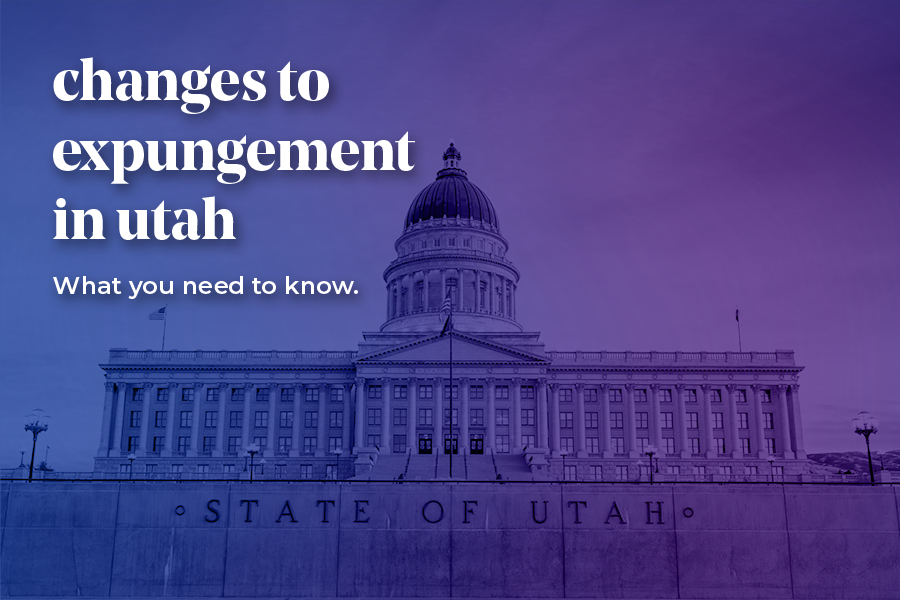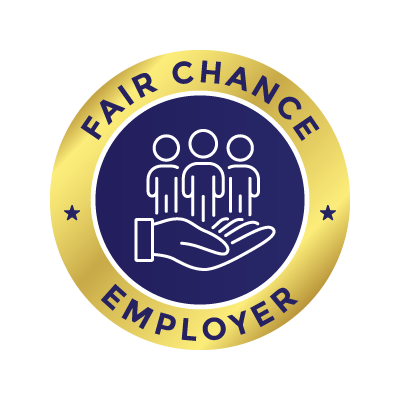Two expungement-related bills passed this session, making a number of changes to Utah’s expungement landscape. Over the next few weeks, we will be doing a deep dive on all the changes.
To start out, below is a helpful FAQ on two major issues addressed by HB 352 and SB 163–the future of automatic record clearance and government expungement fees.
What’s going on with automatic record clearance?
While Utah’s Clean Slate law is highly impactful, it’s been a lot of work for the government to implement. Utah’s Judiciary has sealed more than 400,000 records so far,and has ordered BCI to remove these records from impacted individuals’ criminal history reports. Because this can be a time-intensive process, BCI has struggled to keep up with the volume, and has only fully cleared about a quarter of the records it has been ordered to expunge.
To address the backlog, HB 352 puts the automatic record clearance process on pause for 18 months, to allow BCI to catch up. In addition, the bill requires a work group to be formed and led by CCJJ to study the implementation challenges and make recommendations to the Legislature on how to move forward.
While no new automatic expungement orders will be processed during the pause, individuals can fill out a form requesting that the court process their expungements during the pause. This form will not be available until October and more information about it will be released later this year.
What’s going on with government fees?
On July 1, 2023, the government raised fees relating to expungement, making it unaffordable for many Utahns with criminal records to move forward with the expungement process.
HB 352 and SB 163 do three main things to address this issue:
(1) they raise the income threshold to obtain a waiver of government fees;
(2) they create a pathway for individuals to have their BCI fees waived;
(3) they require other courts to honor the first judicial determination that someone qualifies for a fee waiver.
Income Threshold For Court Waiver
Under current law, individuals making more than $21,870 do not qualify for a waiver of government fees. This means a person working full-time with a wage per hour of more than $10.51 would make too much to qualify for a waiver of government fees.
SB 163 raises that threshold to $37,290 for households of up to 3 people. This means that beginning May 1, when this bill goes into effect, individuals who make less than $37,290 will qualify for a waiver of court filing fees, without having to fill out waiver paperwork about their income, assets, and expenses.
This is a huge step in the right direction and will help smaller families access the expungement process. However, it’s not a solution. People who make more than $17.93 per hour will still have to pay government fees, leaving many low income families behind.
Creation of BCI Fee Waiver
Under current law, there is no waiver of BCI fees, so if a person cannot afford to pay them, they cannot move forward. HB 352 creates a pathway for individuals to get a waiver of BCI certificate fees, which is a huge step forward.
Under this new law, individuals will be able to indicate on their BCI application that they believe that based on their income they will receive a waiver of court filing fees, allowing them to move forward with their petition without paying BCI certificate fees. Whether they end up having to pay certificate fees, depends on what happens in court.
If the court finds the person’s income qualifies them for a waiver of court fees, and goes on to grant their expungement, the person will not have to pay BCI certificate fees in order for the government to finish clearing their record. However, if the court finds the person does not meet the criteria for a court fee waiver, they will be required to pay to BCI a $65 certificate fee per case before BCI will complete the work to expunge their record.
Changes to Waiver Process
Because Utah has a decentralized expungement process, a person must file a petition to waive fees in every case they have. This often leads to time-consuming, duplicative paperwork, and judicial waste, as a number of different judges are asked to all rule on the same thing: whether or not someone’s income meets the criteria for a waiver of government fees.
HB 352 addresses this issue by allowing the first judge’s fee waiver determination to impact all other cases. This allows the person to file just one waiver, and if it is granted, obtain a waiver of court filing fees in all other pending cases. If the fee waiver motion is granted, that also extends to a waiver of BCI fees.




